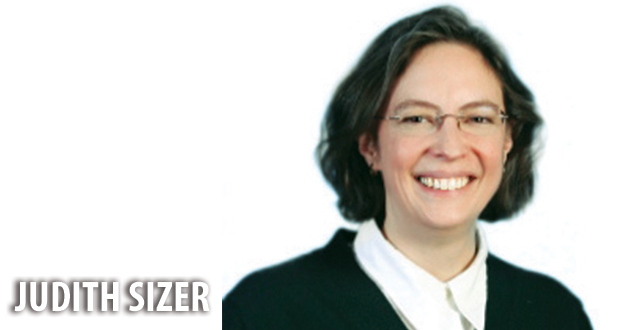 After serving 22 years as in-house counsel for Brandeis University, Judith R. Sizer recently moved on to her career’s “next act” as senior counsel at Rose, Chinitz & Rose in Boston.
After serving 22 years as in-house counsel for Brandeis University, Judith R. Sizer recently moved on to her career’s “next act” as senior counsel at Rose, Chinitz & Rose in Boston.
New England In-House’s Matt Yas asked Sizer about the legal ins and outs of the educational environment and her decision to leave behind university life after more than two decades on campus.
* * *
Q. In what significant ways do colleges differ from for-profit clients in their approach to legal matters?
A. Many school administrators are trained as teachers, not businesspeople, and find the process of locating and working with an outside lawyer fairly stressful. They don’t have the time or the stamina to focus on billing rates, levels of expertise and comparison shopping. All they want to do is to lay their burden down, as quickly as possible, on a trustworthy lawyer who understands their issues, offers straightforward, well-informed advice and documents, doesn’t talk down to them, and won’t cost an arm and a leg.
Q. How would you describe the current climate of relations between educational institutions and their counsel?
A. In my view, the university in-house community in the Boston area is generally healthy and successful. Since I moved back into private practice, however, I have heard far too many stories about educational administrators deciding not to call their outside counsel with particular questions because of high billing rates. That simply goes against my grain as a longtime in-house lawyer. As your readers know, the advantage of having in-house counsel is easy access to experienced legal advice at a fixed fee. It seems unjust that those services are limited to larger, wealthier institutions.
Q. Talk about the academic context in which university in-house counsel must exist.
A. Colleges, universities and schools are intense, creative places filled with great thoughts, free agents and young people, and they are notoriously short-staffed and difficult to manage well. Those qualities can create challenges for counsel. Litigation counsel especially must understand that the academic community requires flexibility. It’s almost never a good idea to place the optimal legal strategy for trial over the real-time campus issues.
In addition, remember that university faculty members operate on their own timetables. I was once given an affidavit by outside litigation counsel and told to obtain the signatures of five tenured professors on the document within the next three hours. Just make them do it, I was told. Needless to say, it didn’t happen that way.
Q. You have worked in-house for such a large portion of your career. What precipitated the move to a firm?
A. Brandeis was a great place to be for many years, but it was time for my next act. I have known and worked with Alan D. Rose for 25 years, and the lawyers at Rose, Chinitz & Rose have successfully represented Brandeis in five or six high-profile matters, among others. The prospect of using my in-house skills for the benefit of academic and charitable clients generally, within a well-respected boutique litigation firm with an extensive education client base, was very attractive to me.
Q. When you began in-house almost 22 years ago, how knowledgeable were you in education law, and in retrospect, do you feel you were sufficiently prepared in that area? How much can one bring as a newcomer versus learning on the job?
A. I’m a little unusual: I grew up in an academic family and entered law school with the goal of becoming a university attorney. My training began right out of law school with a year in the Yale Office of the General Counsel. But I hired two successive employment lawyers to help me at Brandeis, neither of whom had had extensive legal experience in higher education, and they both took to the field very quickly. I’m very proud to say that one of them, Steven S. Locke, has succeeded me as Brandeis GC without missing a beat.
 New England Biz Law Update
New England Biz Law Update
